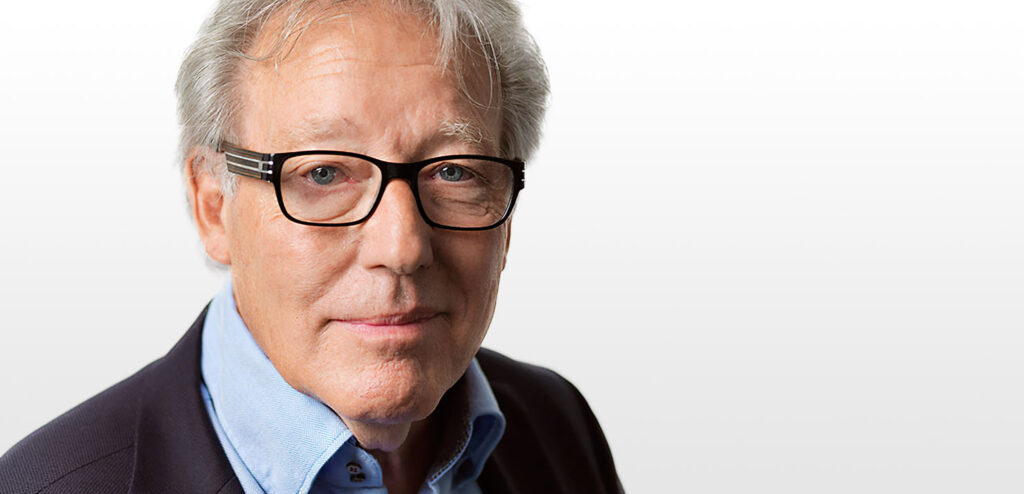
 Albert Einstein World Award of Science 2023
Albert Einstein World Award of Science 2023
Field of Work: Nanoscale Science
Date: 3 November 2023
Place of Ceremony: Great Hall
Host Institution: University of Helsinki
Host Country: Finland
Professor Christoph Gerber, Department of Physics and Swiss Nano Institute, University of Basel, Switzerland, has been selected as the winner of the “Albert Einstein” World Award of Science 2023.
The prize is awarded in recognition of the fundamental nature and broad impact of his research on Nanoscale Science.
The jury recognizes, Prof. Gerber´s co-invention of Atomic Force Microscopy (AFM) and his participation in the development of the Scanning Tunneling Microscope (STM), both of which have enabled breakthroughs in the physical sciences including material physics, chemistry, material sciences, and beyond. The jury also notes Prof. Gerber´s continued development of (AFM) as a biochemical sensor, which has contributed significantly to the rapid progress of life sciences and has had a great and positive impact on the health and welfare of humankind.
Finally, yet importantly, the Jury also acknowledges Prof. Christoph Gerber´s dedication to science which has extended more than 40 years and his commitment as a role model in scholarship that inspires future generations through the significant and continuous impact of his work.
Christoph Gerber was on the team, who developed the lens-less scanning tunneling microscope (STM), for which his colleagues Gerd Binnig and Heinrich Rohrer were awarded the Nobel Prize in 1986. Gerber has continued to develop the technology further and has added numerous new innovations. The emergence of Atomic Force Microscopy (AFM) 37 years ago in the then fledgling field of nanotechnology led to a paradigm shift in the understanding and perception of matter at a fundamental level. This is illustrated by the fact that an (AFM) has already been sent to the Martian surface and another was used onboard the European Space Agency Rosetta mission to a comet to investigate stardust on the nanoscale. It seems not even the sky is the limit for (AFM) technology.
Another achievement with a tremendous impact is nanosculpting. The term refers to adding, arranging, and removing atoms to produce desired phenomena and functionality. The tip provides a versatile tool for accomplishing such control. Being able to manipulate conductors and insulators at the nanoscale has applications comparable to those of nanoscale 3D printing. Nanostructures created by force microscopy-based techniques include devices in nanomechanics, nanoelectronics, nanophotonics, nanomagnetism and quantum mechanics.
The advantages of (AFM) have become especially significant, this includes experimenting in fluidic environments, which opens the possibility of exploring biological systems. A single molecule, such as a DNA or a protein molecule, can be suspended between the tip and surface. Lifting the tip stretches and unfolds the molecule. The measured restoring force reveals the molecule’s elastic properties and functionality. High speed (AFM) for the first time enables to visualize biological functions in real time including dynamics in the time domain of chemical reaction monitoring the cellular machinery at the nanoscale and millisecond resolution.
Complementary to imaging and control on a molecular level, Prof. Gerber and his team pioneered the development of biochemical sensors based on the in-situ detection of biological reactions by temperature and stress-sensitive cantilevers arrays. This opened new doors for medical applications in fast and early diagnostics on the genetic level with point mutation resolution. Major recent research achievements with this technology have contributed to the field of rapid medical diagnosis of conditions caused by multidrug-resistant (MDR) bacteria in treatment with antibiotics and their severe complications in sepsis. The technique has the potential to play a vital role in personalized diagnosis including capturing circulating tumor cells (CTCs) in the bloodstream in the field of liquid biopsies. Tailoring treatments to genetic makeup are part of the vision for precision medicine where all care is custom-fit to an individual DNA and genetic drug matching, which drugs work best for patients, what doses works best is part of Pharmacogenomics.
In addition, the high flexibility of (AFM) to image, probe and manipulate materials with unprecedented resolution and the ability to be combined with other technologies made it the most powerful and versatile toolkit in nanoscience and nanotechnology of today.
Developments of (AFM) technology have been on the hands of a large number of scientists across the globe, however, experts recognize that Prof. Gerber is a uniquely creative person who stands out as an originator of this breakthrough and as a leader in beginning these advancements to their full potential.
Prof. Christoph Gerber´s work has been recognized with multiple honorary degrees and various awards and appeared in numerous articles in daily press and TV coverage. In 2001, together with the late Prof. Dr. Hans-Joachim Güntherodt and other researchers from the Department of Physics at the University of Basel, he was intensively involved in the creation of the National Center of Competence in Research “Nanoscale Science”. This Program led to the start of the Swiss Nano Institute SNI in 2005 where he served as a co-director for 14 years. 2016 he has been awarded the Kavli Prize in Nanoscience together with Gerd Binnig and Calvin Quate for the Atomic Force Microscope. He is a Fellow of the American Physical Society, a Fellow of the World Technology Network and a Fellow of the IOP Institute of physics, UK. He serves on the advisory boards of several nano institutes and has chaired and co-chaired various international conferences.


